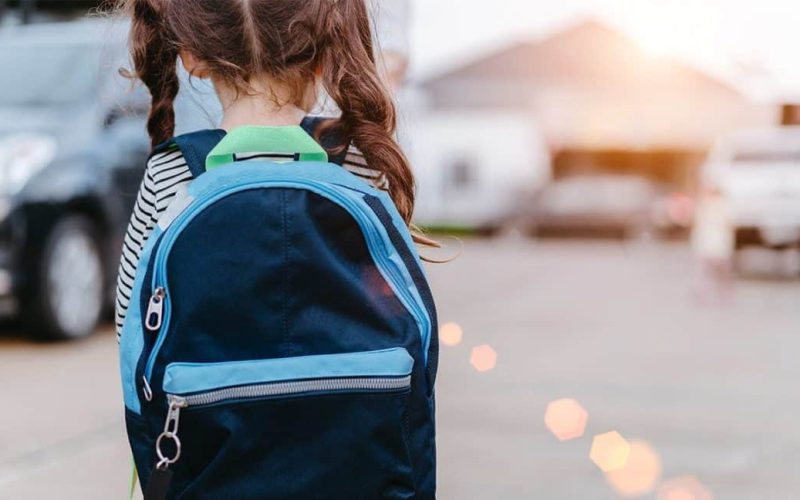Parents can’t wait for the schools to open their doors after the holidays so that kids can give them some breathing space. Yes, we know the urge to send those kids away every morning doesn’t make you a bad parent.
In fact, for stay at home mum’s the time the kids spend away from the house is the only time you get to rest from the shouting, fighting, and scattering that comes with having children.
However, your kids deserve only punishments that do not put them at risk of injury or severe pain when they exhibit annoying behaviors. Do not give them the unintentional backpack penalty!
When your child carries a backpack that looks heavy, you may give it a blind eye because you know it contains just school materials, but your child is piling up some potential health challenges before your very eyes.
The weight of all the books in that backpack is sometimes more than your Child’s body weight, and that puts your child at risk of quite some backpack-related injuries and other health conditions that might send them to the emergency room in no time.
This is why your child should carry as little weight as possible in his or her backpack no matter how many subjects he or she learns at school.
Your child’s backpack should not weigh more than 10% to 15% of the child’s body weight but most times that is not the case. It is easy to spot a child with an overloaded backpack because of how they groan as they lift it and put it on their backs and how they tend to lean forward to support the weight on their backs.
What are the potential risks associated with carrying heavy backpacks?
Risk of a shoulder injury
The weight of an overloaded backpack causes the straps to press hard on the carrier’s shoulders, and this can lead to sores and marks on the shoulders.
Bad posture
The weight of a heavy backpack causes a child to lean forward. If the child continues with that back bending for an extended period, it could lead to a long-term deficit in posture as the child grows older.
Muscle fatigue
If the child logs around a heavy backpack for an extended period, his or her muscles will become fatigued and have an imbalance which could also lead to injury and lousy posture over time.
Back pain
For short all small stature children, studies have shown that the weight of overloaded backpacks will cause their backs to ache terribly and also put them at risk of falling sometimes.
Even overweight kids are vulnerable to back pain when they carry heavy backpacks because their muscles and joints are already stressed by the excess fat in their body.
Neck pain
Massive backpack carriers are also at risk of experiencing neck pain as a result of uneven weight distribution when they have the bag on their back. That leads to an excessive strain on the carrier’s cervical spine.
Most times, children try to carry their backpacks in ways they might find less stressful. Though their intentions are right, they unknowingly put themselves at risk of sustaining injuries when they carry their packs wrongly.
How to treat and prevent backpack injuries
- Be sure to know how much your child weighs and see to it that his or her backpack does not weigh more than 10% or 15% of the child’s weight. Remove books your child doesn’t need for the day’s lessons or have the school keep all your child’s books except the ones for homework.
- Make sure your child’s backpack is one that fits perfectly and not over sized.
- Teach your child how to put on a backpack correctly. To correctly carry a bag, the carrier should use both backpack straps and not just hang one on the straps on a shoulder. Adjust the straps so that they are comfortable on your shoulders while the bag sits high above your hips and not below it
- Ensure the backpack sits correctly on your back, so it does not swing from side to side as you walk.
- Readjust the straps of your backpack according to the different thickness of the clothes you wear while you have it on. Make sure straps are not too tight or too loose.
- If your backpack has a waist strap, endeavor to use it. Waist straps help to evenly distribute the weight of your bag so that your shoulders do not have to carry it all.
- Engage in exercises.
If your kid already suffers from back pain as a result of carrying a heavy backpack, let he or she engage in exercises that help strengthen the back and abdominal muscles to improve body posture. Do not forget to also see a doctor for proper treatment of severe neck, back, and shoulder pain.
Paying attention to everything that concerns your kids is easier said than done but trying to avoid possible risks of health problems will not only save you money, it will save you both emotional and physical stress.
However, as you get your kids new backpacks, explain to them the reason why they need to put it on correctly and carry only the little school supplies that are important to their daily school activities. Your kids will thank you for being a great parent in the future.







